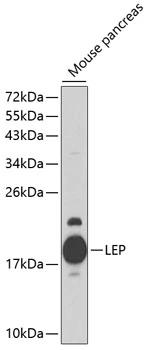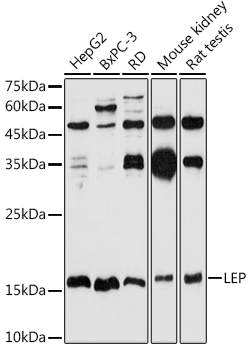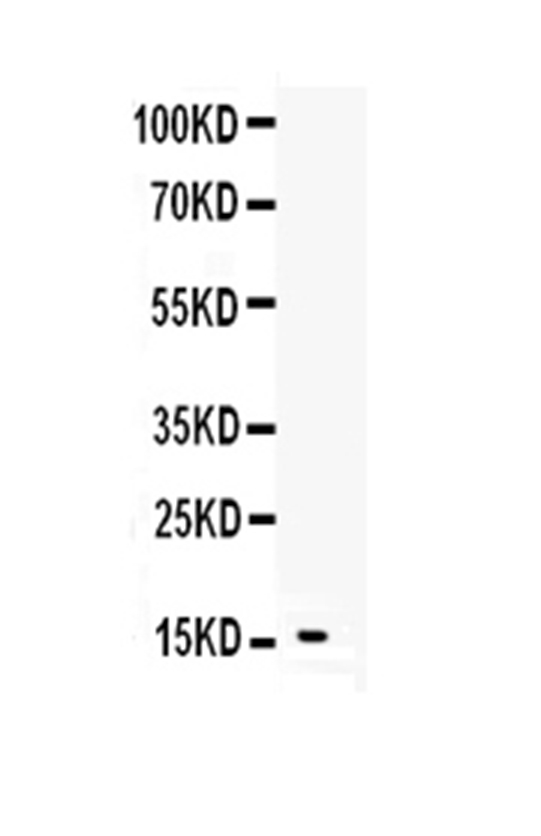
WB analysis of mouse pancreas tissue lysate using GTX17573 Leptin antibody. Dilution : 1:1000 Loading : 25μg per lane
Leptin antibody
GTX17573
ApplicationsWestern Blot
Product group Antibodies
ReactivityHuman, Mouse
TargetLEP
Overview
- SupplierGeneTex
- Product NameLeptin antibody
- Delivery Days Customer9
- Application Supplier NoteWB: 1:500 - 1:2000. *Optimal dilutions/concentrations should be determined by the researcher.Not tested in other applications.
- ApplicationsWestern Blot
- CertificationResearch Use Only
- ClonalityPolyclonal
- ConjugateUnconjugated
- Gene ID3952
- Target nameLEP
- Target descriptionleptin
- Target synonymsLEPD, OB, OBS, leptin, leptin (murine obesity homolog), leptin (obesity homolog, mouse), obese protein, obese, mouse, homolog of, obesity factor
- HostRabbit
- IsotypeIgG
- Protein IDP41159
- Protein NameLeptin
- Scientific DescriptionThis gene encodes a protein that is secreted by white adipocytes into the circulation and plays a major role in the regulation of energy homeostasis. Circulating leptin binds to the leptin receptor in the brain, which activates downstream signaling pathways that inhibit feeding and promote energy expenditure. This protein also has several endocrine functions, and is involved in the regulation of immune and inflammatory responses, hematopoiesis, angiogenesis, reproduction, bone formation and wound healing. Mutations in this gene and its regulatory regions cause severe obesity and morbid obesity with hypogonadism in human patients. A mutation in this gene has also been linked to type 2 diabetes mellitus development. [provided by RefSeq, Aug 2017]
- ReactivityHuman, Mouse
- Storage Instruction-20°C or -80°C,2°C to 8°C
- UNSPSC41116161



